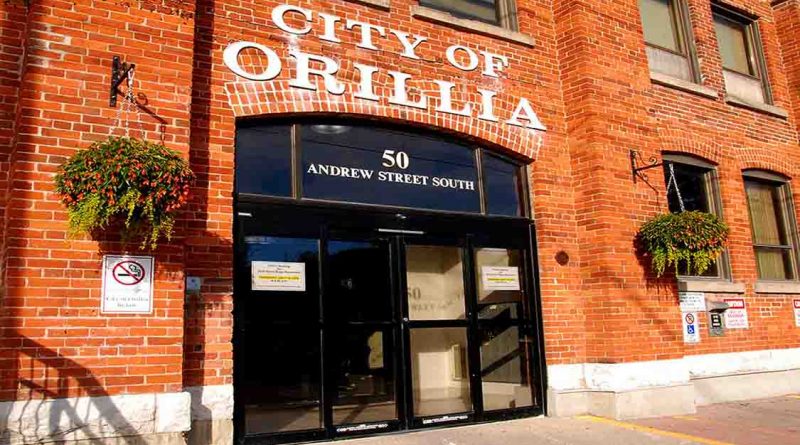Analysis: Did Fallis Do The Right Thing?
By John Swartz
Monday afternoon council is getting a report from the City’s integrity commissioners, Jeffrey A. Abrams, and Janice Atwood-Petkovski of Principles Integrity about Jay Fallis’s admitted discussions with his personal lawyers about details with the Request For Proposal (RFP), submissions and evaluations for redevelopment of City owned waterfront land.
The report takes 22 pages to outline the timeline of events, Fallis’s defense, and rationale for arriving at the recommendation council accept a motion:
“That having been found to have breached the City of Orillia’s Council Code of Conduct, Councillor Fallis’ pay be suspended for a period of between 30 and 45 days commencing with the next pay period.”
Talking about, even hinting at what happens in municipal closed sessions is a serious thing. Things required to be in closed session go on which could prejudice real estate deals, labour negotiations, litigation, trade secret information being supplied to a municipality, a few other things tangent to those and advice subject to solicitor/client privilege.
The latter is interesting because Fallis’s conversations with two lawyers about what went on during closed meetings which lead to awarding the redevelopment to FRAM Building Group are subject to solicitor/client privilege.
Solicitor/client privilege is one of the most important, and misunderstood concepts of Canadian law. The bottom line is what you tell, or show your lawyer stays between you and your lawyer. Your lawyer cannot reveal, except in certain circumstances, what passed between you.
The point of a closed session meeting is to keep things confidential and there is an obligation on the part of councillors, and staff present to keep things to themselves. But what if a decision to be made has potential to become controversial, or as a councillor you don’t think all the relevant and proper information was presented, or you know the outcome of a decision is going to make somebody very unhappy – maybe to the point of suing. There are many reasons a councillor might want to consult with a lawyer about a vote they must make. If there is no one to turn to for advice, we have set up a poor system, and it seems solicitor/client privilege solves this problem.
“I was asked to respond to the follow up report of the integrity commissioner. That was one of my major issues and I sent him a follow up letter, 8 or 9 pages long and one of the major issues was the privilege. Lawyer/client privilege trumps any other type of privilege almost exactly, unless it’s hate or something like that, then it doesn’t,” William Hunter told SUNonline/Orillia.”
“In my opinion based on case law from the highest court in the land, as a matter of fact several cases, which I sent to the IC, privilege would ensure as much as humanly possible that any document Jay showed to his lawyer – and I haven’t seen the documents – anything that was shown to the previous lawyer could not be released to anybody. Privilege would, in my opinion, trump the code of conduct, which is just a code passed by council about closed session meetings. As far as the concern – if there was any, of any documentation getting out to the public that was next to impossible in my opinion.” Hunter is the third lawyer Fallis has engaged on this matter.
While much of the report refers to the RFP in various contexts, that document was not the matter at hand. An RFP is what bidders or companies tendering use to arrive at proposals and prices and it is difficult to imagine council would be debating an RFP after the fact. Council was making a decision based on another document which involved the results of a systematic scoring of both submissions by FRAM and TPI and staff’s recommendation which to choose. Fallis had an issue with some part of what was presented to council in that report, which relates back to interpretations of RFP requirements reflected in the report. Fallis also had concerns about the advice given to council by the City’s solicitor. Fallis requested an explanation of what the RFP required, which should have translated to the evaluation report staff put before council. The integrity commissioner says misinterpretation resulted from a mathematical error on Fallis’s part.
The report also states, “It is apparent that the Respondent caused his outside counsel to be under a clear misapprehension of a central fact.” Fallis’ denies he misrepresented anything to his lawyer. Regardless, this point is irrelevant to the issue of whether Fallis has a right to counsel.
“I didn’t calculate anything. My lawyer did. I am not aware I made any misstatement to my lawyer,” Fallis told SUNonline/Orillia.
One hopes if a councillor has reservations about any issue in closed or public session which is of such importance they believed they needed legal advice, the right to consult should be a given. The very idea any body or government entity can prohibit a person from speaking with a lawyer is antithetical to what most Canadians believe about a central part of our justice system.
“I think you are absolutely right. If Jay had come to me at the outset and said, “Can I show you some documents from a closed session because I have a concern the city may get sued, and I may get sued as well, for damages. What risks have I got?” I would say the law of privilege applies and supersedes the code of conduct – closed session, because those documents are going to be kept privileged and private forever and ever,” Hunter said.

It seems there is more to all this than is visible. Council had what amounted to, based on publicly available proposal documents, a Chevette (FRAM’s proposal) and a Corvette (TPI’s proposal) to choose between and they chose the Chevette. We won’t know the full details until the sale of the land in question is finalized at the end of this year, which it too late for the public to judge if council made the right choice.

It seems Fallis might have recognized a problem with the system that favoured, based on publicly available documents, a lesser proposal and wanted to make sure he was in a defensible position if liability issues cropped up. However the integrity commissioner’s report takes the opposite view.
“On the facts presented to us, we are of the view that no reasonable person would conclude that the Respondent was exposed to any personal liability as a consequence of the City’s procurement process and so that stated purpose for the retainer must be considered baseless.”
When an integrity commissioner is involved in a matter of council business, there usually is a recommendation. In this case they proposed a motion for council:
“… Councillor Fallis’ pay be suspended for a period of between 30 and 45 days commencing with the next pay period.” Fallis’s counsel disagrees with this penalty.
“I, for decades have done a lot of municipal law. I am an integrity commissioner for 3 municipalities in Eastern Ontario (Arnprior, Gananoque and South Stormont). I have represented various people such as Jay that a complaint has been made against and I have never seen a penalty as severe as the penalty that was laid down by this IC. I thought, and when I put in my answer to them on the privilege I said, “First of all, I don’t think he broke the closed session because he went to a lawyer and he has a right and that supersedes it.” I said, “If you’re of a different mind, I think the maximum penalty should be he get a reprimand.” I have to say I was very shocked when I saw 30 to 45 days loss of pay,” Hunter said.
“It’s interesting; I have been on both sides. There are penalties around from 30 to 45 days or 90 days in certain other cases. I’m not saying there’s no other cases in the province of Ontario. I’m sure there are, but if you look at the severity and you look at the privilege and you look at the safety that the lawyer was not going to release anything to anybody, and you look at the bona fides of the councillor, Jay Fallis, wanting to make sure the right thing was being done, and then the 30 to 45 day penalty loss of pay seems severe to me.”
But it’s up to council. They can reject the findings and the proposed penalty. They can also impose a stiffer penalty.
“Council doesn’t have to respect that. They can do whatever they want. The bottom line often comes down to whether the councillor who is in breach is liked or not liked by the rest of the council. A case I’ve been involved in the councillor has been liked and he or she, “well, there’s no penalty this time.” At other times I’ve seen them increase the penalty. I have no idea what they’ll do,” Hunter said.
While Fallis may have broken the City’s code of conduct concerning closed meetings, the code is flawed if it prevents councillors from the right to seek legal advice of their own choosing. Voters may congratulate him, council should give the lowest possible reprimand, and then set about changing the code.
See the full integrity commissioner’s report here, starting at page 49. Also see Fallis’s statement on this matter here.
![]()



![]()
Watch the regular council meeting on this issue live on Rogers TV at 4 p.m.
(Photos by Swartz – SUNonline/Orillia)
Comment




